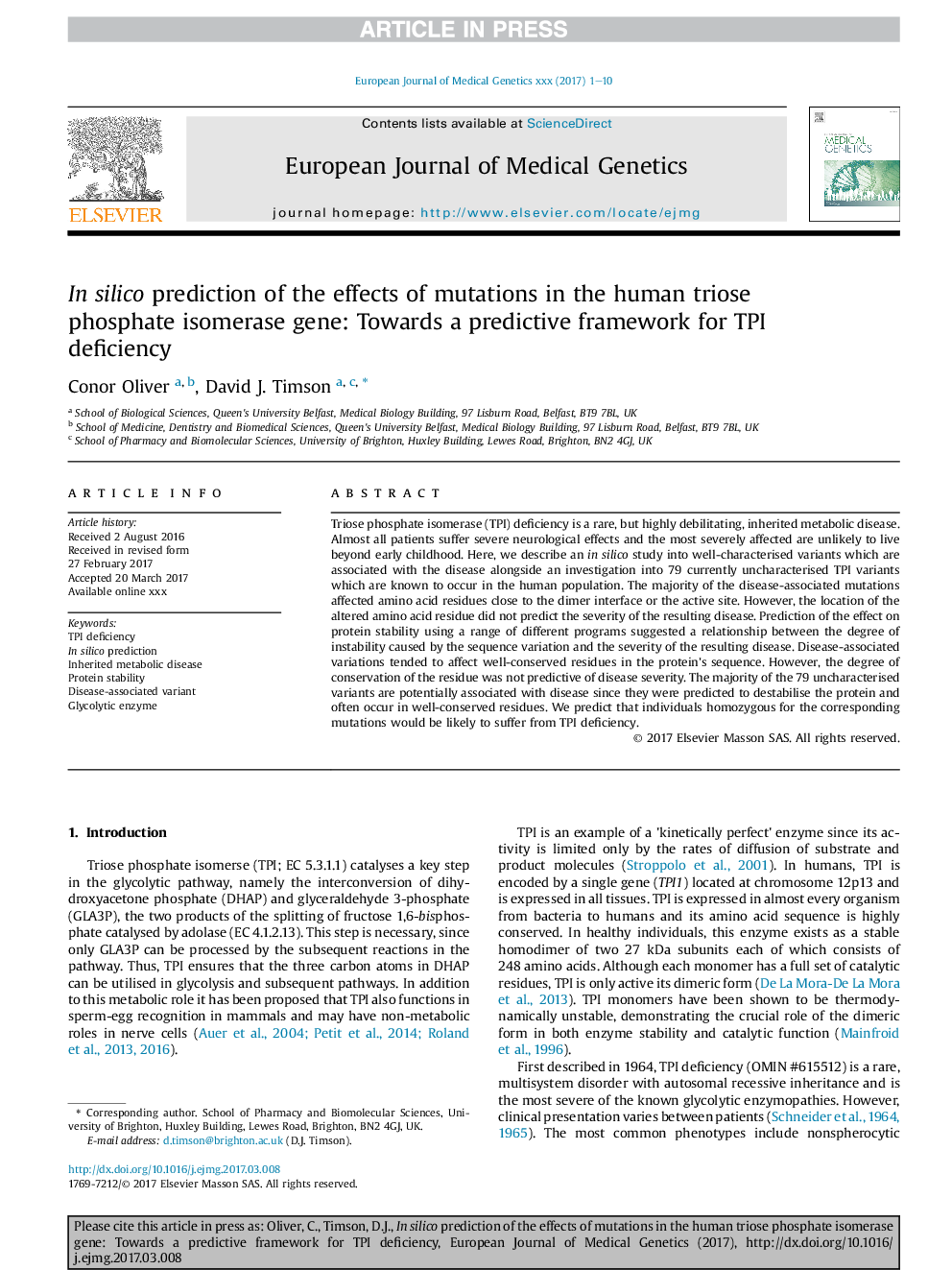| Article ID | Journal | Published Year | Pages | File Type |
|---|---|---|---|---|
| 5589054 | European Journal of Medical Genetics | 2017 | 10 Pages |
Abstract
Triose phosphate isomerase (TPI) deficiency is a rare, but highly debilitating, inherited metabolic disease. Almost all patients suffer severe neurological effects and the most severely affected are unlikely to live beyond early childhood. Here, we describe an in silico study into well-characterised variants which are associated with the disease alongside an investigation into 79 currently uncharacterised TPI variants which are known to occur in the human population. The majority of the disease-associated mutations affected amino acid residues close to the dimer interface or the active site. However, the location of the altered amino acid residue did not predict the severity of the resulting disease. Prediction of the effect on protein stability using a range of different programs suggested a relationship between the degree of instability caused by the sequence variation and the severity of the resulting disease. Disease-associated variations tended to affect well-conserved residues in the protein's sequence. However, the degree of conservation of the residue was not predictive of disease severity. The majority of the 79 uncharacterised variants are potentially associated with disease since they were predicted to destabilise the protein and often occur in well-conserved residues. We predict that individuals homozygous for the corresponding mutations would be likely to suffer from TPI deficiency.
Related Topics
Life Sciences
Biochemistry, Genetics and Molecular Biology
Genetics
Authors
Conor Oliver, David J. Timson,
